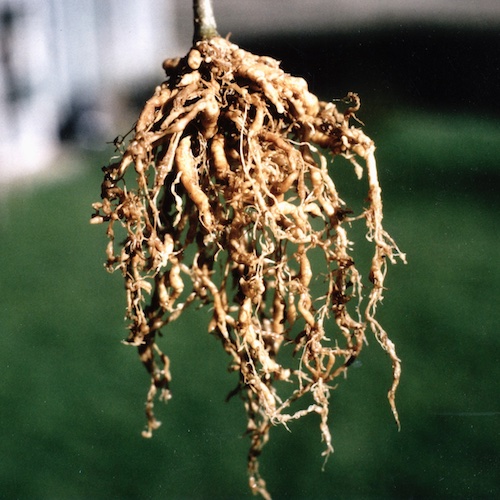
Knowledge Hub
Meloidogyne incognita (Root-Knot Nematodes)

Scientific name
Meloidogyne incognita
Common name
Root-Knot Nematodes
Source: PlantwisePlus Knowledge Bank
Prevention and Control
Management
- Use resistant varieties and do not establish seedbeds where vegetables have been grown previously. After preparation of the seedbed, burn the topsoil using dry leaves or other waste plant materials
- Solarisation of seedbeds. Long, hot, sunny days work best. A period of 4 to 6 weeks should be enough to control soil borne plant pests such as nematodes and weeds
- Use biofumigation: neem cake powder/mustards cakes/chicken droplets are mulched and incorporated into the soil. The new crop can be planted or sown 3 weeks after incorporating any of those into the soil
- Maintain high levels of organic matter (manures and compost) in the soil
- Mixed cropping with marigold can also minimise root-knot nematode damage
- Uproot entire plants from the field after harvest and destroy crop debris
- Rotate crop with onions, maize, millet, sorghum or sesame
Search
Activities
Downloads
© 2024 Safer Spice. All rights reserved.

 BACKGROUND
BACKGROUND



